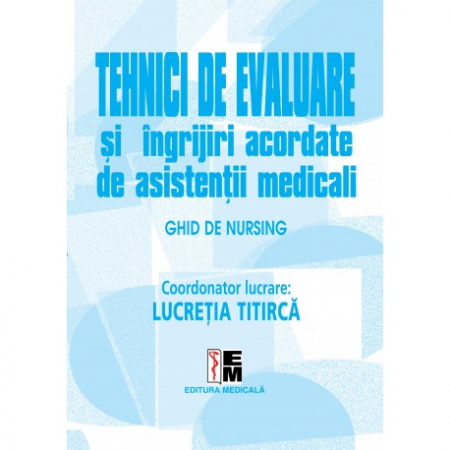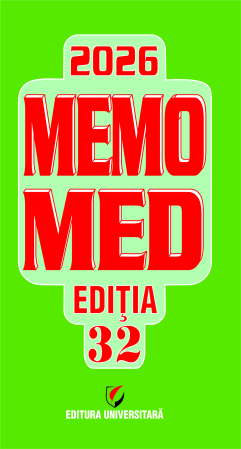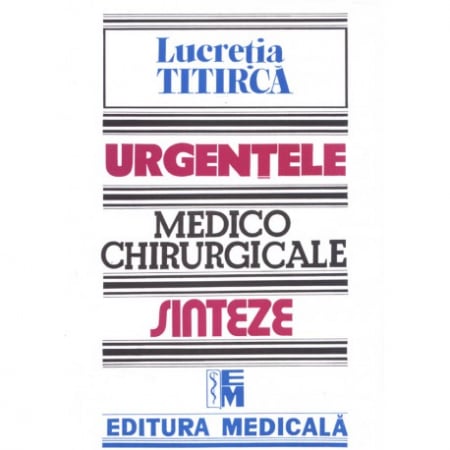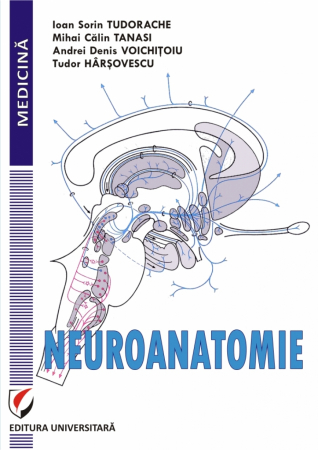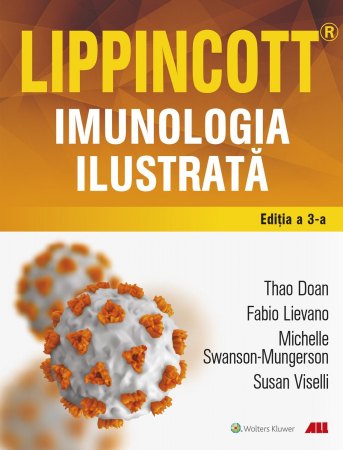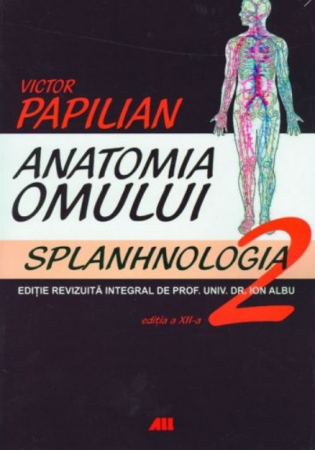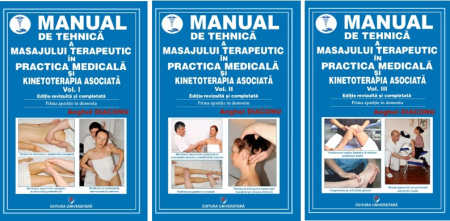Publisher: Editura Universitară
Author: Vasilie Gh. Ciubotaru, Alexandru Vladimir Ciurea, Eugen Avram - Coordonator
ISBN: 978-973-749-147-3
Publisher year: 2007
Edition: I
Pages: 424
- Description
- Download (1)
- Authors
- Content
- More details
- Reviews (0)
Organizational-managerial development is a planned process that has as general objective the assurance of organizational health, including efficiency measures, optimization of the quality of life at work, of the quality of services and products. The emphasis is on improving the organization's ability to recognize and solve the problems it faces, to achieve the goal of total quality. In health, development processes will have to focus not only on the development of current problems, but also on anticipating future problems, not only on certain types of processes, but on as many of them as possible, not only on technical resources, but also on especially the human ones. Organizational-managerial excellence pursues not so much the adaptation to the circumstances, but especially the becoming and the power to create the circumstances.
The paper addresses several categories of specialists: staff with managerial or administrative functions in health, organizational counselors, human resources specialists. They will have the opportunity to better understand the specifics of health organizations, the "areas" for which they can develop projects and management programs in accordance with concrete institutional needs, with the new European requirements. The reader has the opportunity to discover one of the most complex structural-functional organizations, that of neurosurgery services.
-
Dezvoltarea managementului in organizatiile sanatații - Excelenta in serviciile de neurochirurgie
Download
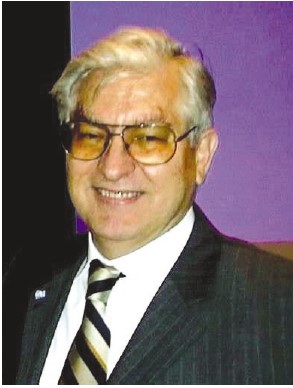
PROF. UNIV. DR. ALEXANDRU-VLADIMIR CIUREA is a primary neurosurgeon, doctor of medical sciences, professor of neurosurgery at the University of Medicine and Pharmacy "Carol Davila". He is Vice President of the World Federation of Neurosurgery Societies (WFNS), President of the Romanian Society of Neurosurgery (RSN), President of the Romanian Society of Neuro-Oncology (SNOR). Since 1989 he has been the head of the First Neurosurgery Clinic of the Bagdasar-Arseni Emergency Clinical Hospital. Between 1997-2005 he held the position of general manager of this hospital. His contributions in the development of neurosurgical medical practice, the first operative performed, the intense research activity have materialized in a vast work that is a fundamental landmark in the field of neurosurgery.
He is the main author in 15 monographs in the field of neurosurgery, among which we mention "Pediatric neurosurgical pathology" (1980), "Craniopharyngiomas" (2005) and "News in intracranial cavernos" (2005). He is the co-author of 21 neurosurgical treatises; involved in 17 national and international research projects between 2000 and 2005, practically setting up the neuroscience research department of the "Bagdasar-Arseni" Emergency Clinical Hospital, Bucharest.
In the country and in the world he has been awarded countless medical awards and distinctions (selectively):
1981 - Academy Award for the monograph "Pediatric neurosurgical pathology" (Academy Publishing House, Bucharest, 1981) (in collaboration);
May 31 - June 2, 1992 - Our policy in myelomeningoceles - experiences in 66 cases (in collaboration), Berlin (Germany) ESPN XIII-th Congress;
1995 - International cultural diploma of honor - The American Biographical Institute;
1995 - Gold Record of Achievement - The American Biographical Institute;
1995 - Deputy Governor - ABI Research Association’s Board of Governors;
1995 - International Who’s Who of Intellectuals - Cambridge International Biographical Center;
1996 - Marquis Who’s Who in the World;
2001 - Doctor honoris causa, “Dunarea de Jos” University, Galati, Romania;
2001 - Aalborg Key and Statutes of Christian the 4 th’s Guild;
2002 - Marquis Who’s Who in the World;
2004 - Medal of Merit for education (13.12.2004);
2004 - Medic.ro Excellence Award;
2004 - Honorary Diploma, Bucharest Prefecture, 01.12.2004;
2005 - Excellence Award for the work Craniopharyngiomas ("Carol Davila" University Publishing House, 2005, Bucharest) (in collaboration);
2005 - Prize for treatises in the field of medicine;
2006 - Diploma of Excellence for the book Cranio-cerebral Traumatology, (Carol Davila University Publishing House);
2006 - Honorary Citizen of Brasov Municipality;
2006 - Ten for Romania, Nominated for "Best Surgeon for 2006";
2007 - Title of Honorary Membership - Roumanian Society of Pedriatic Surgery.
Decorations / Medals:
2000 - National Order of the Faithful Service in the rank of Commander (Official Gazette of Romania, part I, no. 669 / 16.12.2000);
2004 - Medal of Sanitary Merit (Official Gazette of Romania, no. 1179 / 13.12.2004, art. 6. Decree 1090);
2004 - Order and Medal of Merit for Education (Official Gazette of Romania, no. 1181 / 13.12.2004, position 134. Decree 1097);
2005 - Plaque „Acad. Prof. Dr. Constantin Arseni ”, on the occasion of the 30th anniversary of the founding of the First Neurosurgery Clinic Bucharest, for the entire professional activity;
2005 - Medal Turkish Neurosurgical Congress, Antalya, Kemer, May 2005.
In the field of management, Prof. Dr. A.V. Ciurea followed between 2004-2005 two specialized masters and also published a series of studies and researches. As a result of his managerial experience, Prof. Dr. A.V. Ciurea has developed, in the clinic he leads, a management system based on: organizing activities in three sectors, repeated supervision and control, communication in groups and between semi-autonomous groups, repeated exposure of quality expectations. The organizational values promoted in Clinic I Neurosurgery are: excellence, team spirit / collegiality, professional satisfaction. "In order to develop and motivate professionally, people must be taught, educated and controlled more often, so as to cope with well-defined boundary conditions" - this is the basic principle of management promoted by Prof. Dr. A.V. Sieve in Clinic I Neurosurgery, this variant-feedback proving to be the most effective for the profile of pediatric neurosurgery and general neurosurgery of the department.
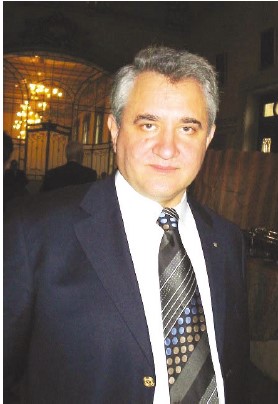
DR. VASILIE GH. CIUBOTARU is a primary neurosurgeon, doctor of medical sciences. He is the Head of the III Neurosurgery Clinic at the Bagdasar-Arseni Emergency Clinical Hospital. Special professional achievements: the first endoscopic ventriculocisternostomy in Romania (in collaboration); the first intraoperative determination of the evoked potentials in Romania (in collaboration); introduction of the operating microscope and endoscopic assistance in the transsphenoidal approach of pituitary tumors; the first endoscopic transfenoidal approach of a pituitary tumor in Romania (in collaboration). He has been Treasurer of the Romanian Society of Neurosurgery since 1990; organizer of over 20 national and international scientific events; over 100 participations in scientific events; over 30 specialized studies published in prestigious periodicals in the country and abroad (selectively): „Infundibuloma. Case Presentation ”, Rom. Neurosurg., New Series, 1993, II, 2, pp. 165-167 (in collaboration); “Abcessed Encephalitis on a Cerebral Angiomatous Bakground”, Rom. Neurosurg., New Series, 1993, II, 2, pp. 177-179 (in collaboration); „Prognosis Factors In Ruptured Anterior Willis Circle Aneurysms. A Study On 225 Operated Cases ”, Rom. Neurosurg., New Series, 1994, III, 1, pp. 3-15 (in collaboration); “Medullary Complications of Tuberculous Meningitis,” Med. Mal Infect., 1995, 25, pp. 1183-6 (in collaboration). He is constantly present at training courses and internships in the country and abroad, among which: 25.11-01.12.1995 XI.International Course on Clinical Neurosurgery, Hanover-Germany; 11-15.03.1996 Second Erlangen Pituitary Surgery Seminar, Neuro-surgical Clinic of the University of Erlangen - Nuremberg, Germany; 5.05.1997 Course in Neurosurgery organized by the SNCLF, Marrakech, Morocco; 18-20.04.2001 International Workshop On Neurosurgical Endoscopy, Paris, France; 21-23.06.2002: Hospital Management - Basic notions - IMMS, Bucharest; 2-3.11.2006: 2nd International Workshop on Neurosurgical Endoscopy, Istanbul, Turkey. In section III Neurosurgery, Dr. Vasile Ciubotaru chose as managerial solutions: organizing activities and staff in two sectors, sequential supervision, with periodic feedback, multidirectional communication between positions and sectors, increasing the autonomy of employees: "to develop professionally , people must be held accountable so that they can learn to deal with as many situations as possible ”- is the principle that has proven to be most effective. The values promoted in section III are: promptness, quality, supportive organizational climate.
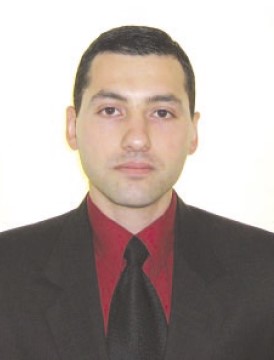
PSYCHOLOGIST EUGEN AVRAM is a University Assistant, holder in the Department of Psychology of the Faculty of Psychology and Educational Sciences at the University of Bucharest (since 2003); Psychologist in the neurosurgery services of the Bagdasar-Arseni Emergency Clinical Hospital (since 2005).
Master's degree: Organizational and economic psychology, Faculty of Psychology, University of Bucharest (2002-2004); Health system management, Faculty of Sociology and Social Work, University of Bucharest (2005-2006); Cognitive-behavioral psychotherapies, "Titu Maiorescu" University, Bucharest (2005-2007).
In 30 published studies and researches, at 20 national and international scientific events he addressed the issue of management in health and education systems. Supports the implementation in health organizations of modern management practices, based on research data. He represented the Bagdasar-Arseni Emergency Clinical Hospital and the Romanian Society of Neurosurgery at a series of scientific events and management meetings. He coordinated several issues of the Journal of Organizational Psychology.
Studies and research with relevance in health (selective): "Basics of health management", Journal of Organizational Psychology, 2004, vol. IV, no. 1-2; "Applications of participatory management in health organizations", Neurosurgery Iasi, vol. VI, no. 1-2 (in collaboration); "Directions of organizational change and development in health", Management in health, 2005, year IX, no. 2, June (in collaboration); "Efficiency of the organizational structures of hospitals", Health Management, year IX, no. 3, September, pp. 32-40 (in collaboration); "Leadership in health system organizations", Health Management, 2006, year X, no. 2; "Health at work - priority objective in neurosurgery clinics", Infomedica, 2006, 3, pp. 26-33 (in collaboration); "National standards of practice in the field of clinical psychology", Journal of Organizational Psychology vol. VI, no. 1-2, pp. 157-183; "The organizational-managerial excellence in the field of neurosurgical services", in the volume "International Conference of Psychology - Centenary of Psychology at the University of Bucharest, October 26-29, 2006". His research activity has resulted in two CNCSIS grants and two CEEX grants.
Preface (Professor Cary L. Cooper, CBE) / 11
Abstract / 13
Introductory word / 19
Contents / 27
Table of contents / 33
CHAPTER I
Requirements and arguments of management development in the Romanian health system / 39
1. Context / 39
2. Conceptual delimitations / 42
3. Requirements of management development in the Romanian health system / 44
3.1. Global demands of management development in health systems and structures / 44
3.2. European demands of management development in health systems and structures / 45
3.3. National requirements for management development in health systems and structures / 49
4. Arguments for the development of management in medical organizations / 51
5. Conclusions / 58
Bibliography / 59
CHAPTER II
A retrospective on the management practiced in the Romanian health system / 64
1. The need for a “diagnosis” / 64
1.1. Financial resources management / 64
1.2. Regulatory management / 68
1.3. Strategic change management / 69
1.4. Management of the organizational system / 72
1.5. Technical system management / 75
1.6. Human resources management / 77
1.7. Image management / 79
1.8. Relationship management with beneficiaries / 81
1.9. Scientific development / 85
1.10. Management of objectives / 88
2. The gains of the reform !? / 90
Bibliography / 91
CHAPTER III
The hospital - from crisis to development and efficiency / 95
1. The hospital - between crisis and organizational health / 95
2. Organizational development / 102
3. Efficiency - permanent desideratum of the activity and results of the hospitals / 112
4. A future perspective / 123
5. Conclusions / 125
Bibliography / 127
CHAPTER IV
The road to excellence / 130
1. Two guidelines on health excellence / 130
2. Managerial organizational excellence - short history, perspectives / 132
2.1. Brief history of concerns for organizational managerial excellence / 132
2.2. The perspective of organizational managerial excellence in health / 145
3. Excellence and quality of results (services) - history, perspectives / 149
3.1. Brief history of concerns for quality management of results (services / goods) / 149
3.2. Management for the quality of health services / 152
4. Perspective of Excellence / Total Quality Management in the medical units / 154
4.1. Attitudes, principles, general stages / 154
4.2. Concrete actions / 161
5. Obstacles to excellence in the health system / 165
6. Conclusions / 167
Bibliography / 168
CHAPTER V
The approach for excellence of the relations with the beneficiaries of the neurosurgical health services / 170
1. The new perspective of approaching the relationship with the beneficiaries in neurosurgery services / 170
2. The existential context of the interned people / 173
3. Building client confidence - a permanent concern in health / 175
3.1. Diagnosis and prognosis in neurosurgery / 176
3.2. Pre and postoperative psychological training / 179
3.3. Supporting factors during hospitalization / 181
3.4. Contraindications / 186
4. Are there sources of conflict in the doctor-client relationship ?! / 186
5. Customer relations - the essential component of health management / 188
6. Case studies / 192
Bibliography / 193
CHAPTER VI
Development of organizational structures in health organizations / 196
1. Introduction / 196
2. The organizational structures of the hospitals / 197
3. Development of organizational structures in neurosurgery services / 199
3.1. Specialization / 199
3.2. Standardization / 208
3.3. Formalization of relations / 217
3.4. Centralization and decentralization / 223
3.5. Defining the control line and duration / 230
3.6. Rule and regulation in neurosurgery services / 233
4. Coordination and cooperation positive effects of clarity of structures / 238
5. The effects of a deficient organizational structure / 239
6. Conclusions / 240
Bibliography / 241
CHAPTER VII
Developing leadership of excellence in health organizations / 243
1. Introduction / 243
2. Leadership in health / 245
3. The leader of excellence in neurosurgery services / 246
3.1. He is a good strategist / 247
3.2. It is flexible, supporting the necessary changes / 249
3.3. Uses all types of power / authority / 250 in a balanced way
3.4. It has the ability to orient both to the task and to the people / 252
3.5. He calculatedly combined authority with democracy / 254
3.6. It has emotional balance / 256
3.7. Has the ability to adapt to contingents / 257
3.8. He knows how to manage the relationship between rewards and sanctions / 260
3.9. Understands the personality traits of subordinates / 260
3.10. He adapts his leadership to the level of maturity of his subordinates / 262
3.11. It relates objectively to events and correctly identifies the source responsible for the event / 263
3.12. He has and shares a vision / 264
3.13. He has charisma / 265
3.14. He is a transactional ider / 267
3.15. Inspire confidence / 268
3.16. "Transform" people / 271
3.17. He is concerned with optimizing his own leadership style / 273
4. Precautions / 275
5. Conclusions / 278
Bibliography / 278
CHAPTER VIII
Building teams of excellence in health organizations / 281
1. IntroductionBuilding teams of excellence in health organizations 281
2. Development of excellence teamsBuilding excellence teams in health organizations 284
2.1. Towards a profile of excellence teamsBuilding excellence teams in health organizations 285
2.2. Factors that contribute to building effective teamsBuilding teams of excellence in health organizations 288
2.2.1. Management of structural factorsBuilding teams of excellence in health organizations 288
2.2.2. Understanding and controlling the impact of technology on group processes and their effects (equipment, instruments and their effects: noise, strong light, radiation, etc.) / 289
2.2.3. Management of organizational processes (motivation, communication, cooperation, decision making, control) / 290
2.2.4. The impact of organizational culture / 293
2.2.5. Driving behavior / 294
2.2.6. Social and occupational component of group members / 295
2.2.7. Relationships between group members / 297
2.2.8. Group rules / 298
2.2.9. Confidence within teams / 302
3. Practices to promote the excellence of the teams in the neurosurgery services / 303
3.1. Practices in terms of interpersonal / group relationships / 304
3.1.1. Balint Groups / 304
3.1.2. The culture of collegial relations / 305
3.1.3. Development of team safety / team safety / 306
3.1.5. Mentoring / 308
3.1.6. Team reward / 311
3.2. Practices focused on the activity plan / 312
3.2.1. Group research / 312
3.2.2. Elaboration of mechanisms for coordinating the activity of team members / 313
3.2.3. Activity balance / 316
3.2.4. Team briefing / 317
3.2.5. Information meetings - have a more passive character / 318
3.2.7. Quality circles / 318
3.2.8. Team Manual / 319
3.2.9. Problem solving techniques / 322
4. Precautions / 323
5. Conclusions / 326
Bibliography / 327
CHAPTER IX
Promoting the quality of life at work in health services / 331
1. Quality of life at work intense concern of those in charge of neurosurgery services / 331
2. Professional satisfaction permanently desired in neurosurgery services / 336
3. Self-esteem at work a concept correlated with occupational health / 340
4. The issue of trust in the topicality of medical life / 342
5. Organizational trust indicator of health and safety at work / 344
6. Conclusions / 351
Bibliography / 352
CHAPTER X
National Strategy for the Development of Management in Neurosurgery Services - directions, objectives, first set of research / 355
1. Main directions / 355
3. The first stage of the research performed in the neurosurgery services / 359
3.1. Objectives / 360
3.1.1. General research objectives / 360
3.1.2. General intervention objectives / 360
3.2. Field of investigation: / 360
3.3. Methodology / methods / 361
3.4. Results / 362
3.4.1. Study 1 - Department of Anesthesia and Intensive Care (ATI) / 362
3.4.1.1. The situation of the technical system / 362
3.4.1.2. The situation of the financial system / 363
3.4.1.3. Activity situation / 363
3.4.1.4. Situation of quantitative staff indicators / 364
3.4.1.5. Situation of qualitative personnel indicators / 366
3.4.1.6. Directions for consolidating interventions in the ATI / 367 section
3.4.2. Study 2 - Investigations on work attitudes / 370
3.4.2.1. The objective and the general hypotheses / 371
3.4.2.2. Method / 371
3.4.2.3. Defining the studied indicators / 372
3.4.2.4. Presentation, processing and interpretation of data / 375
3.4.2.4.1. Descriptive statistics / 376
3.4.2.4.2. Comparative analyzes regarding the Romanian and North American health management system / 379
3.4.2.4.3. Correlational analysis / 383
3.4.2.4.4. Comparative data in relation to the characteristics of the subjects / 393
1. Comparative data by seniority categories in section / 394
2. Comparisons by age categories / 396
3. Differences in training levels / 397
4. Differential analyzes between section categories / 400
5. Differences between ATI doctors and other ATI / 402 staff
6. Predictors of organizational commitment in the hospital / 403
7. Conclusions / 413
Bibliography / 415
General conclusions / 418
1. Guidelines and trends in health management / 418
2. Interdisciplinarity of management in health organizations / 420
I found in the organizational management literature a series of theories, research, experiments that were a real source of understanding the functionality of the organizational life of the hospital, I discovered many effective studies in health, their design can be resumed in sample studies. autochthonous. Also, we found that in their vast majority, the works announcing the title addressing the problems of health management or health management, are limited, however, to the somewhat mechanical resumption of theories or models, without making adaptations to the reality of life, activity and staff in health organizations. All the more, there is a lack of research in the field of health management.
Currently, there is intense talk about changing the health legislation or the legislation regarding the activity of hospitals, possible economic solutions, managerial reform, European integration, etc. The reality is that these reforms have left the heads of the medical units with the same problems. The change is constantly taking place, but the results are not projected and, implicitly, cannot be recorded. The medical literature abounds with exposures on the inconsistencies of the national health system, solutions are sometimes issued, we could say that a new science has emerged, of health crises.
Undoubtedly, the activity in all medical services is influenced by socio-economic contextual factors, but internal managerial factors cannot be neglected. The staff employed in health often has to deal with actions of maximum importance and urgency, in working conditions marked by the insufficiencies of the health system. The social and economic transition does not seem to end too soon, the reforms will continue in the same style, so that the health managers can only continue to look for internal solutions and try to overcome through internal mechanisms some of the existing problems. It is useless to mention the inability to provide health resources as needed, but increasing the quality of services, improving relations between practitioners and beneficiaries, optimizing communication, the workplace climate, reducing occupational stress, increasing job satisfaction and safety , of the quality of life in the organization are aspects that can be treated directly by the decision makers from the units, the final results converging directly towards the improvement of the working conditions and the quality of the services. All health systems in the world have problems. Therefore, once again the importance of elaborating projects and management programs in health systems and structures is revealed. Whether or not there are problems, concerns for organizational managerial development must be constantly present.
No project for change in health can be achieved without reviewing and analyzing the general and specific obstacles faced by local medical life correlated with the organizational diagnosis in each medical unit. Without a complete diagnosis we cannot design interventions that lead to real results. Intervention based on research data is the law that must prevail. Training people is the key to overcoming difficult situations in structures. We cannot, however, reduce this training only to knowledge and skills specialized skills, more skills are needed to allow employees to coordinate their efforts, to communicate as effectively as possible, to cope emotionally with any situation, to never be taken by surprise, to be mobilized for action. As for us, we ask ourselves: How can we have such super people, who work hard and are also professionally satisfied? The answer is announced right from the title of the paper: by developing management in health organizations, in neurosurgery services!
This paper has been the fruit of our activity for a long time, being preceded by a series of articles, studies and research published in national periodicals or presented at conferences and symposia in the country and will certainly be followed by new appearances. The data of the organizational managerial specialized literature with the data of the health management literature and with the data of the current health literature are combined in a fluent and systematized manner. The book has several objectives. First of all, we are interested in making available to all people with managerial responsibilities in health a practical guide to use in order to better manage the activities in the departments, in order to develop their managerial skills. Secondly, we intend to offer a model to other medical managers, so that they can use the information contained in the chapters of the paper to optimize management in their own units. Thus, we try to carry forward the scientific knowledge in the field of organizational management applied in healthcare environments. The main goal that we aim at from the perspective of our specialty is that, starting from a series of specialized knowledge in management and from our experience of management and activity, to lay the foundations of a program designed to increase the efficiency / performance of staff employed in neurosurgery services, increasing the quality of services, managing all the resources of the activity.
Organizational managerial literature, counselors' manuals, practice guides provide more general information. Over time, specialized knowledge began to appear in relation to industrial organizations, with different types of work groups, certain positions, etc. but health organizations have been less approached, probably due to limited access due to the need to comply with customer safety conditions. Through this paper, organizational counselors, human resources specialists will better understand the specifics of health organizations, "areas" for which they can develop projects and management programs in the perspective of new European applications aimed at implementing quality programs and accrediting institutions according to ISO standards. . On the other hand, all categories of health personnel invested with managerial functions will have the opportunity to develop their capabilities for operationalization and application of optimization / development measures in the areas over which they have responsibility. In fact, at present, all these categories of health personnel who hold managerial roles are specifically required to acquire management knowledge and skills. The system no longer allows maintaining in managerial positions those who will not prove the following of some forms of training. Therefore, the book can be an additional support for their formation. The reader, whether he is an organizational advisor, health manager, or passionate about this field will be able to establish a direct relationship with the specifics of health services and especially with neurosurgical ones. The fascinating but impenetrable world of neurosurgery services is open to the general public. The most important aspects of managerial life in these services will be presented, in addition we will introduce some medical sequences to provide a realistic picture of the complexity of neurosurgical activity. I resorted to the presentation of images from the activity of neurosurgeons, hospital staff, images that are certainly a premiere for the overwhelming majority of readers. Many other aspects could be analyzed, but for this the pages of a single book are insufficient.
From the beginning we warn the reader that he will not find in this book administrative solutions, economic schemes, analysis charts, etc., but will find less treated aspects in the health management literature: organizational and managerial development. This is a development of the way of organizing actions, interpersonal relations at work, based par excellence, on research data. The study of attitudes, behaviors, sets of thinking and feeling of employees, skills and leadership style of bosses is at the heart of developmental progress. Intrinsic participation is gradually built by implementing practices that promote increasing the quality of life at work, finding solutions even by employees, acquiring the capacity for organizational learning, ie constructive use of experience in favorable and unfavorable situations, so that the organization as the whole and each employee to become able to notice the problems and solve them, each resolving experience becoming a good that can be taken over and used by other employees.
We insisted a lot on the format of the paper, trying to make a decision on how to work, whether it should be rigorous, the emphasis on science should be visible or whether the speech should have a more accessible note. We opted for a medium version, in which to combine scientific data with fluent exposures loaded with realism, in the manner of a practical guide. The paper has ten chapters.
The first chapter deals with the issue of requirements and arguments that drive the concerns for the development of management in health services. The global, European and national requirements are presented, but also a series of arguments such as: notifications and start of projects by managers of medical units, research results in Romanian managerial organizational environments, the existence of organizational dangers, research model and management programs in health services in other countries.
The second chapter reveals the reality of the Romanian health system, as it was reflected in the medical news press. The main problems, controversies, difficult moments, but also the proposed solutions recorded so far are reviewed. We systematized the information on several sections, being systematized in ten areas: economic system management, regulatory management, strategic change management, organizational management, technical system management, human resources management, image management, beneficiary relationship management, scientific development, goal management. The chapter is sprinkled with a series of personal analyzes and comments, and at the end, we draw conclusions about the progress of the reforms initiated so far.
In the third chapter we resort to a presentation of the situation of the representative health units: the hospitals. The analyzes start from the illustration of the tensions that took place in these organizations, the potential dangers, the perspectives of development and efficiency of these organizations are presented.
The fourth chapter, entitled "The Road to Excellence" provides a clear picture of the particularly complex issue of excellence in health systems and structures. The two orientations that have emerged are presented: managerial excellence and service excellence. For each orientation, the authors resort to the presentation of a short history and to the concrete directions that have been outlined in the two fields. Also, the chapter contains relevant information on the total quality management applied in health: specific, principles, stages.
The fifth chapter reveals the new approach for excellence in relations with the beneficiaries of neurosurgery services. A new perspective is promoted in which: the applicant for health services is understood in terms of "client", "beneficiary"; the relationship with the client is based on the explanation of health problems, it is no longer reduced to sketching the diagnosis / prognosis; services are based on the most modern technologies. In addition, we take into account the design and organization of additional services, the quality of life of the client. The client is no longer understood as a passive subject, but as an active person who has responsibility not only in relation to his state of health, the quality of personal life, but also in relation to the state of health and quality of life at the workplace of providers.
The sixth chapter presents the context of the development of organizational structures. The dimensions of the organizational structures are presented and a series of comments and analyzes are issued regarding their optimization in the health structures, especially in the neurosurgery services.
In the seventh chapter, an insufficiently explored dimension is analyzed in the management works applied in health, namely, leadership. Contextual factors and the need for leadership development in health and neurosurgery, a brief historical perspective of treating leadership in the health system are the first sections covered. The authors' approach to expound the new criteria for the development of leaders in neurosurgery is unique: it goes through the theories of leadership and applies clarifications.
The next chapter, the eighth, brings to the reader's attention one of the most Challenges of health management team building. I am exposing information of prime importance for bringing health teams to the level of excellence: factors, possible development practices. From the perspective of health services and especially those of neurosurgery, it shows the special value of building team spirit and developing mechanisms for coordinating members of neurosurgical, clinical and emergency teams. Coordination of excellence between team members and between different teams in health and neurosurgery services are the objectives explicitly stated by the authors.
In the ninth chapter, one of the major concerns of managers in neurosurgery services, namely, the promotion of quality of life at work, is supported. The excellence of the services is indirectly dependent on the excellence of the working conditions. The focus is on those practices that help promote a healthy work environment, a tonic work environment in neurosurgery services. For the first time, they are treated in the local medical literature: the problem of organizational trust, job satisfaction, organizational justice, self-esteem at work.
The last chapter, the tenth, is the culmination of the paper: for the first time in the Romanian health services is configured the project of a national program for the development of organizational management and human resources, which takes into account multiple variables: economic, structural, psychoorganization. In this sense, the management of the Romanian Society of Neurosurgery uses the presentation of a set of directions, objectives. Research conducted at Bagdasar Arseni Emergency Clinical Hospital is a model for other health managers, proving the importance of "evidence-based management", ie management that uses projects and programs only by virtue of and based on scientific results. Informative management represents the desideratum that the management representatives from the Romanian neurosurgery services promote and that they have concretely adopted. We do not exclude the fact that following the structuring of the National Program for the Development of Management in Neurosurgery Services to propose a Global Project of this kind in all neurosurgery services in the world, given our responsibility both for the Management of the Romanian Society of Neurosurgery and for the Management of the World Federation. of Neurosurgery Societies.
Before inviting the reader to resort to the work of the book, we would like to thank those who supported us in its creation: Prof. Univ. Dr. Mielu Zlate, who was kind enough to provide us with valuable ideas and to provide us with a series of bibliographic sources; Dean Prof. Univ. Dr. Catalin Zamfir, who laid the foundations of a superior form of training in health management, the Master of Health System Management, a form of training that was a valuable basis for authors to understand the mechanisms of health management; Dr. Fery Stoica, Dir. R.U.N.O.S. Ec. Doina Simion, Ec. Marian Rosoi, Assistant Chief Ana Mares and the other colleagues who carried out an intense management activity with us, contributing among others to the elaboration of the managerial documentation of the unit, the study of these documents serving partially for chapter VI of the paper, Mrs. Mariana Vantu Ionescu, who was kind enough to guide us in connection with some bibliographic sources. We thank the medical staff, the medium and auxiliary staff of the Bagdasar Arseni Emergency Clinical Hospital, which was the main source that determined us to develop the work, and which, at the same time, was a source of concrete facts that did not incite to intellectual reflection in order to find answers to the phenomena that arose in terms of efficiency, organizational behavior, structure, climate, organizational culture of the institution.
Practically, this book is dedicated to all categories of employees who contribute to the neurosurgery services in our hospital, being at the same time a symbol of our appreciation for their efforts. We are also thinking of all categories of employees of the health services in Romania, who, we hope, will feel our support for the cause of their professional life.
The National Strategy for the Development of Management in Neurosurgery represents a partly materialized intention of the Management of the Romanian Society of Neurosurgery. This strategy has as main objective the optimization of the management in these services. We designed several phases of it: documentation, research, implementation and verification of results. This approach has been an older concern of ours, becoming in the meantime an objective for all heads of clinics in neuroscience services. From this moment, the development process really takes place, being in full swing. The first stage of the documentation phase has already taken place, some of the results being presented in this volume. Also, the first stage of the research took place, the preliminary diagnosis being already structured. Other data of the documentation and research will be presented on the occasion of other appearances, which will complete the series of the applied theoretical guide.
Prof. univ. Dr. A.V. Ciurea
Dr. V. Ciubotaru
I would. univ. Psih. E. Avram

6359.png)
![Management Development in Health Organizations - Excellence in Neurosurgery Services [1] Management Development in Health Organizations - Excellence in Neurosurgery Services [1]](https://gomagcdn.ro/domains/editurauniversitara.ro/files/product/large/dezvoltarea-managementului-in-organizatiile-sanataii-excelenta-in-serviciile-de-neurochirurgie-2787-132010.jpg)
